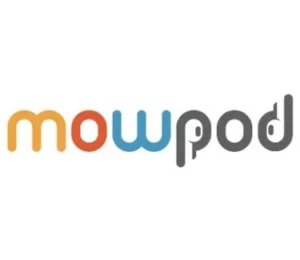LISTEN IN A POD APP
Filters
Niklas Dorn | Filestage
How to grow a SaaS startup — Niklas Dorn // Filestage
Niklas Dorn, CEO of Filestage, talks about the importance of an optimal martech stack. Filestage has gone from being a bootstrapped company to a market leader in content review and approval platform for marketing teams. As a SaaS company, they were able to scale their product and user base relatively quickly, but the journey wasn’t…
Play PodcastFarzad Rashidi | Respona
3-steps to earn editorial backlinks — Farzad Rashidi // Respona
Farzad Rashidi, Lead Innovator at Respona, talks about strategies for organic growth. In a digital world where everyone is creating unique and original content and ensuring their website is fast, how do you top Google’s search results? When it comes to building domain authority, it’s crucial that we create content pieces that are primed for…
Play PodcastFarzad Rashidi | Respona
Finding opportunity keywords — Farzad Rashidi // Respona
Farzad Rashidi, Lead Innovator at Respona, talks about strategies for organic growth. One of the biggest challenges we face as marketers is identifying where there's an opportunity to put yourself in front of your target audience. There are so many different search terms potential customers could be looking for to find your brand, and it’s…
Play PodcastFarzad Rashidi | Respona
Is SEO is the right acquisition channel for you? — Farzad Rashidi // Respona
Farzad Rashidi, Lead Innovator at Respona, talks about strategies for organic growth. Do you know where people are looking for your products and services? When you're trying to figure out what the right acquisition channel is for your company, getting to know your customer’s journey is crucial to figuring out a long term acquisition channel.…
Play PodcastEmily McGuire | AWeber
Improving newsletter conversion rates — Emily McGuire // AWeber
Emily McGuire, Customer Evangelist at AWeber, discusses email list-building tactics and must know email marketing strategies. As marketers, we compete with so many distractions and have a very short window of time to capture our target audience’s attention. Unfortunately, one of the big mistakes we make when sending out newsletters is forgetting to tell people…
Play PodcastMark Stouse | Proof Analytics
Marketing Mix Modeling (MMM) — Mark Stouse // Proof Analytics
Mark Stouse, CEO of Proof Analytics, talks about analytics and marketing mix modeling. While popular, ‘data-driven marketing’ fails to account for a constantly changing reality. As such, campaigns based on historical and not future data, have limited success. Today, Mark discusses marketing mix modeling and marketing attribution.
Play PodcastMark Stouse | Proof Analytics
Tying marketing to measurable results — Mark Stouse // Proof Analytics
Mark Stouse, CEO of Proof Analytics, talks about analytics and marketing mix modeling. We often get so caught up with operational KPIs that we lose sight of our revenue goals as marketers. Furthermore, to determine the impact of our marketing efforts, we must be able to measure our results. Today, Mark discusses tying marketing to…
Play PodcastMark Stouse | Proof Analytics
Marketing, innovation, & rev ops — Mark Stouse // Proof Analytics
Mark Stouse, CEO of Proof Analytics, talks about analytics and marketing mix modeling. Our world has changed considerably since 2020, and intuition-based marketing is a sure recipe for wasted time and resources. Marketers must take advantage of analytics and data to understand and thrive in our respective markets. Today, Mark discusses marketing innovation and rev…
Play PodcastTom Hunt | Fame
Leveraging freelancers to scale a bootstrapped business — Tom Hunt // Fame
Tom Hunt, Founder and CEO of Fame, talks about growing and monetizing a podcast. As a startup with limited budget, getting the best bang for your buck requires some creativity. Cultivate meaningful relationships with freelancers to improve employee churn rates and assure your access to the global talent pool. Today, Tom discusses leveraging freelancers to…
Play PodcastTom Hunt | Fame
Growing a podcast monetization company — Tom Hunt // Fame
Tom Hunt, Founder and CEO of Fame, talks about growing and monetizing a podcast. Podcasts are certainly proving to be one of the best ways to expand your business’ reach while leveraging the reach of industry leaders. For B2B businesses, adding podcasts to your marketing portfolio not only helps with the cultivation of a targeted…
Play PodcastAbout Business Class: B2B
What is B2B (Business to Business)?
B2B or business-to-business refers to products and services that are designed, built, and marketed specifically for other businesses.
The Difference Between B2B and B2C (Business-to-consumer)
The main difference between B2B and B2C (Business-to-customer) is that B2B covers transactions that are done between companies as opposed to B2C, which categorizes transactions between a business and an individual customer.
B2B Marketing vs B2C Marketing
Many B2B marketers would argue B2B marketing is more complex than B2C marketing. Each market type has its own complexities.
Unlike B2C sales and marketing, which is oftentimes targeted toward persuading an individual customer to purchase a product or service, B2B sales and marketing are targeted toward convincing multiple customers such as an entire company and its stakeholders.
In the case of sales of B2B products and services, you not only need to convince the main decision-makers or buyers like the C-suite staff, but you also have to convince them that the entire department or company will benefit. Unlike most typical B2C businesses, the buyer in a B2B business is not the only one impacted by a purchase. It's oftentimes the entire company.
Faced with this challenge, many B2B companies focus heavily on generating high-quality B2B leads and ensuring their journey through the funnel is as efficient as possible to drive sales.
Apk Ticket blog is dedicated to delivering you the best news about your Android devices. We're also committed to helping you find all of the features and applications that you need to live your best life
How to generate B2B Leads & Sales
- Develop a Content Marketing Strategy:
- Create a strong B2B content marketing strategy that adds value to potential buyers, increases lead generation, and drives sales.
- Optimize your B2B Website:
- Set up your B2B website to a self-service where website visitors can be educated and B2B buyers are given the information needed for the decision-making process. Many B2B eCommerce websites have done this very well (e.g. Alibaba.com) where B2B customers can browse and purchase directly from the website.
- Offer a Free Trial:
- Offer a free trial period to new B2B customers. This permits them to use the product or service in the context of their business risk-free and helps potential customers make a decision if they are unsure. When businesses can easily see the impact your product or service has on their operations, you're more likely to obtain more sales.
- Provide Tutorials:
- Create a thorough tutorial system in order to guide the buyer through the product or service so that implementation is as smooth as possible.
B2B in the MarTech World
When people think of B2B, many think of it in the context of a traditional supply chain where a company making a physical product is purchasing components and raw materials from another company in order to sustain its manufacturing process.
The reality is that B2B exists in the digital world in much the same way that it exists in the physical world. Many of the stakeholders in corporate companies and start-ups rely on software built by other businesses in order to build their own digital products or services.
The combination of these various B2B MarTech tools is called their B2B MarTech stack.
How to build a B2B MarTech Stack
If you're building a B2B MarTech stack, there are a few categories that need to be covered. These include:
- Customer Relationship Management (CRM)
- Tracking relationships across your sales and marketing departments is essential. Your customer relationship management tool is key to doing so in order to nurture and convert B2B customers at various touchpoints. Consider using tools like Hubspot CRM, Salesforce, or SAP CRM.
- Marketing Automation
- With the evolution of data collection, consumers today expect more than just cookie-cutter ads that can apply to a large group of people. They want personalization. Nowadays, marketing automation tools like HubSpot, Marketo, and Pardot offer AI and machine learning feature to make it easier to personalize your communication.
- Content Marketing Management
- Content has been king and remains king. A robust content marketing management system is essential for a B2B marketing strategy. The best-in-class platforms offer a combination of workflow management, editorial calendars, and an array of features that make publishing content easy and efficient. Tools we recommend include Contently, DivvyHQ, and Kapost.
- Customer Data Platforms
- "Data is the new oil," is a common phrase marketers have encountered throughout the industry. Given its value, the unification and analysis of customer data should definitely be a priority for your company. Customer data platforms include tools like Segment, Optimove and Exponea.
The Importance of MarTech in B2B
By itself, B2B marketing is a relatively difficult task given it requires persuading a collection of people, such as teams and departments, at a time in order to make a sale. However, when put into the context of the present-day marketing and advertising industry, the rise in ad-blockers and the general disdain consumers have when it comes to being marketed to on social media and search, we see that executing B2B marketing end-to-end is growing increasingly difficult.
With negative sentiments surrounding advertising increasing, it's clear B2B marketers need to revise their approaches, and that approach is personalization.
In order to facilitate personalization, B2B marketers use MarTech tools, which help them access, organize, analyze, unify and action the data. The ability to personalize their marketing in this way allows them to craft outreach messages, nurture campaigns and calls-to-action that customers actually relate and respond to.
If you're interested in learning more about B2B, B2B marketing, B2B companies and B2B sales, check out the episodes listed below from the MarTech podcast.
They include interviews with marketers and influencers in the B2B MarTech industry who share their advice, strategy, and the best B2B tools on the market.
Read MoreRead Less
Sponsors of the MarTech Podcast



































